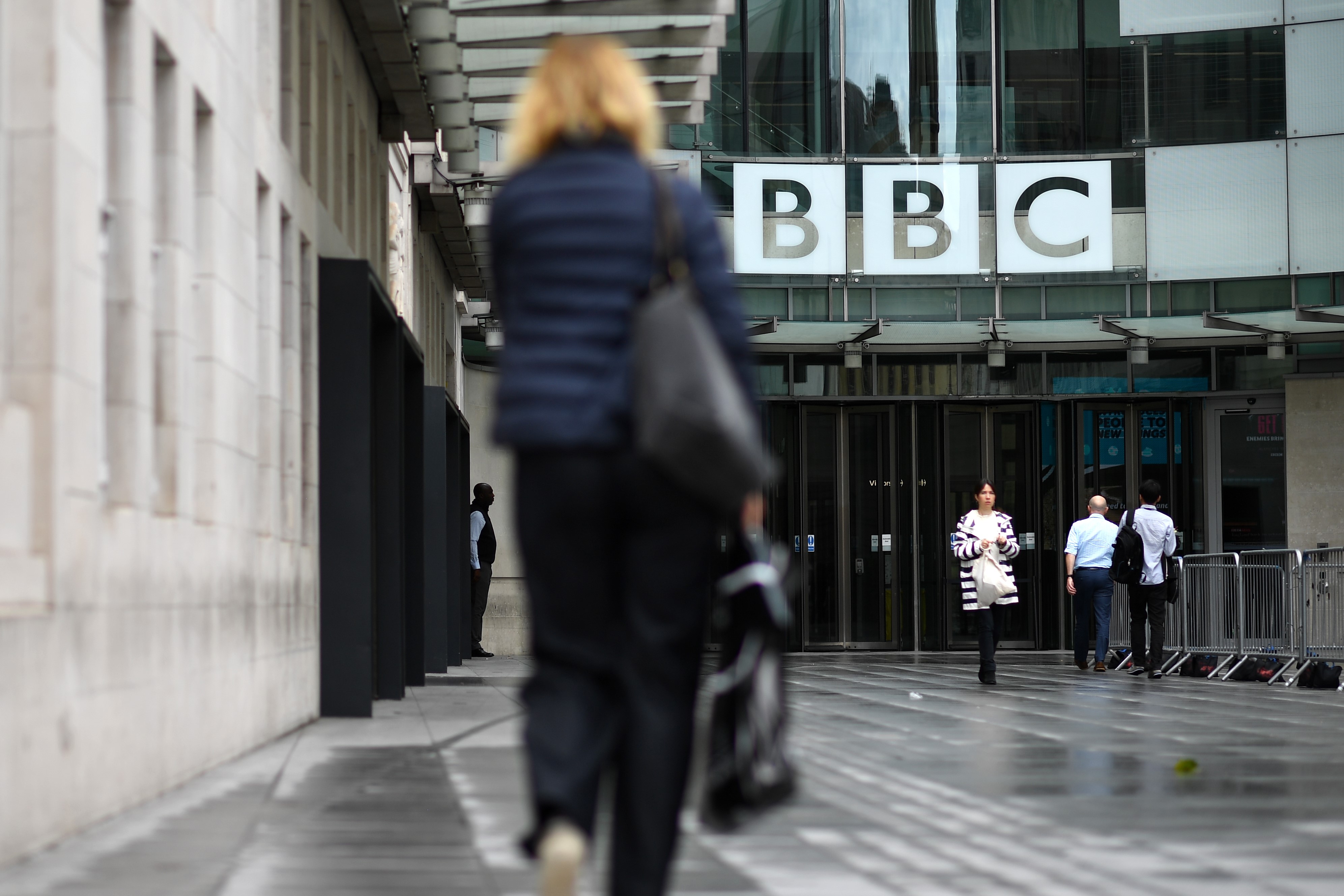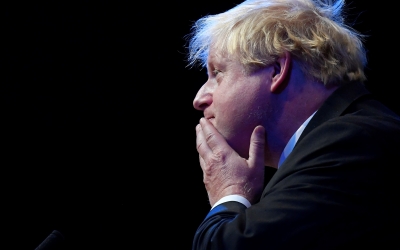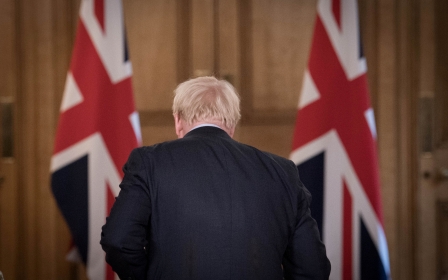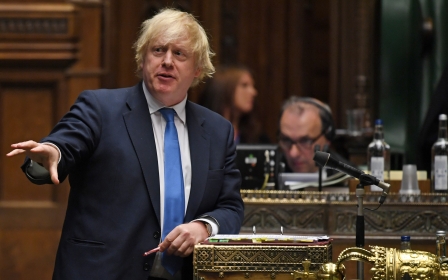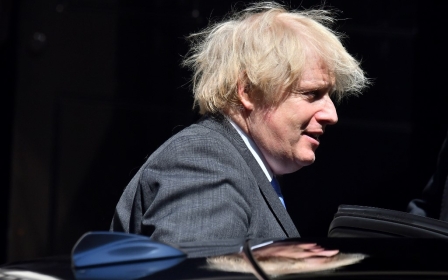Richard Sharp's donations to Quilliam raise questions about his BBC chairmanship
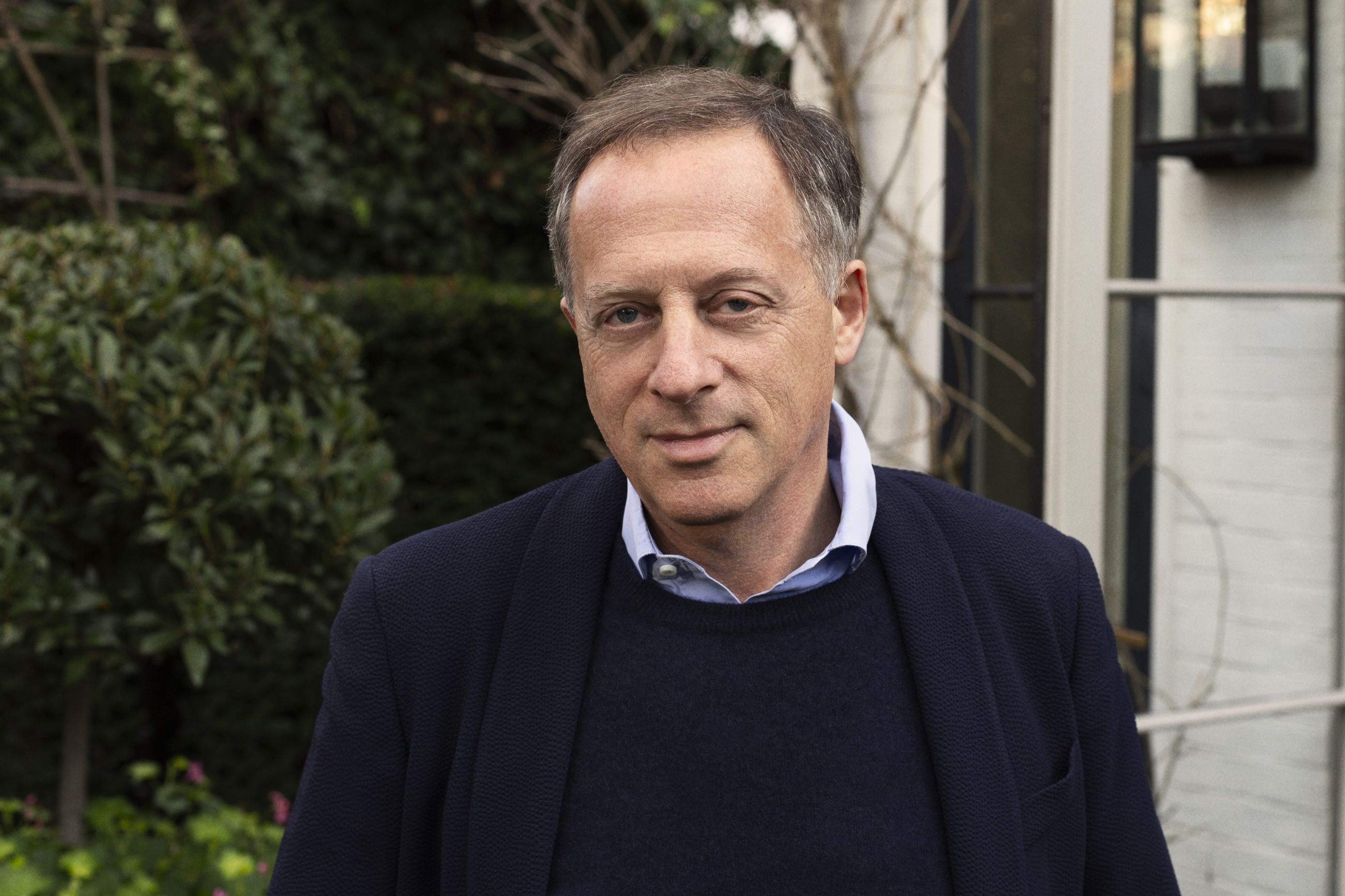
Former Goldman Sachs banker Richard Sharp has enjoyed good press since he emerged as British Prime Minister Boris Johnson’s choice as the next chairman of the BBC. The Guardian said a former colleague described him as “incredibly charming to those he needed to woo”, and noted that he was known as “a brilliant negotiator”. The Times said that insiders described him as “highly competent and sure-footed”.
Hmm. I have bumped into Sharp occasionally for around a quarter of a century, normally at events hosted by right-wing think tanks. Those who know him say he has a clever financial mind, and it is certainly the case that he has made a fortune in business.
For me, the biggest worry about Sharp is his association with Quilliam
In any event, the main problem with Sharp is not his personality or lack thereof, or his dearth of any relevant experience in broadcasting or media. It is not even the fact that he has donated more than £400,000 ($545,000) to the Conservative Party.
For me, the biggest worry about Sharp is his association with Quilliam, which bills itself as the “world’s first counter-extremism organisation”, founded by Maajid Nawaz, who describes himself as a liberal secular Muslim and a former Islamist extremist. Sharp donated £10,000 ($13,600) to the Quilliam Foundation in 2017 and a further £25,000 ($34,000) in 2019.
Sharp did not respond to Middle East Eye’s repeated request for comment on these contributions.
Quilliam (named after the celebrated 19th-century Muslim convert Abdullah Quilliam) is a think tank distrusted by almost every British Muslim I have ever talked to. But it is greatly admired by the transatlantic super-rich, among whom one should include the new BBC chairman. In its early days, Quilliam was sponsored by the British government, but its Home Office backers soon backed away. Since then, its supporters have included the John Templeton Foundation, described by investigative journalist Nafeez Ahmed as “an American conservative philanthropic organisation, with close ties to the Tea Party and extreme right-wing Christian networks”.
Meanwhile, the Lynde and Harry Bradley Foundation, which gave Quilliam $75,000 in 2013, “regularly funds counterjihad organisations such as the David Horowitz Freedom Center and until recently, Frank Gaffney’s Center for Security Policy”, according to an article published by openDemocracy.
Campaigning against Muslims
Seven years ago, Quilliam claimed credit for helping far-right activist Tommy Robinson leave the English Defence League (EDL). But the stunt didn’t work. Robinson abandoned the street-based EDL only to launch a more upmarket form of campaigning against Muslims in general, through a UK branch of the far-right German organisation Pegida. He has called for a halt to all Muslim immigration to Britain and the banning of any new mosques.
These developments have reinforced suspicion and hostility towards Quilliam among Muslim groups. Robinson himself cynically commented that Quilliam was even less popular among Muslims than himself. Quilliam justified its actions by saying that it was deradicalising Robinson. If so, its attempt was met with relatively little success.
But the gravest concern about Quilliam is the disgraceful report it issued in December 2017, entitled “Group-Based Child Sexual Exploitation - Dissecting Grooming Gangs”.
Its authors were Haras Rafiq, the organisation’s CEO, and Muna Adil. They said that their backgrounds, combined with their deep links to the Pakistani and Muslim community, “have given us an adequate understanding of cultural context and the framework of Pakistani society which has allowed us to provide an informed opinion on the potential cultural underpinnings of the data found in this report”.
Fuelling racism and division
The headline finding was that 84 percent of convicted sexual offenders in “grooming gangs” in Britain since 2005 were of Asian heritage. As one would expect, this was reported almost uncritically by British media.
The Daily Telegraph used it to attribute grooming-gang violence to Muslim men who had failed to integrate into British society. The Times headlined the 84 percent figure and quoted Quilliam’s strident attack on its “regressive left” critics. The liberal Independent also led its story with the 84 percent figure and quoted Rafiq’s call for a debate on it “because the problem won’t go away”.
Quilliam’s grooming-gang report unquestionably helped to fuel racism and division. It was subject to withering condemnation. Academics Ella Cockbain and Waqas Tufail delivered a damning verdict: “Although framed as ‘academic’ and ‘evidence-based’, the report is shoddy pseudoscience.”
This verdict was endorsed by a Home Office study in late 2020, which noted: “Research by Quilliam asserted that 84% of 264 offenders convicted for grooming gang offences between 2005 and 2017 were Asian, 8% were Black, 7% were White and 1% were of unknown ethnicity (Rafiq and Adil, 2017). This figure of 84% has been widely repeated as academic evidence for an extreme over-representation of Asian offenders despite a lack of clarity about sampling and data analysis methods … For example, the authors identify 264 offenders, but do not specify how they were found, or how their ethnicity was categorised. These findings are therefore not suitable for drawing conclusions about ethnicity of group-based CSE offenders.”
As Cockbain and Tufail pointed out in the Guardian, the two-year Home Office study makes very clear that there are no grounds for asserting that Muslim or Pakistan heritage men are disproportionately engaged in such crimes.
I have repeatedly approached Quilliam seeking their response to this report, but no answer.
Valuing integrity
Sharp’s support for Quilliam raises important issues, given that he wants to become chairman of the BBC.
The BBC is a national organisation based on fairness and integrity. It should never pursue a sectarian agenda, and it should value integrity in what it does. Its founding chairman, John Reith, proclaimed that the corporation should aim for “all that is best in every department of human knowledge, endeavour and achievement”.
The BBC is a national organisation based on fairness and integrity. It should never pursue a sectarian agenda, and it should value integrity in what it does
Quilliam’s report on “grooming gangs” is by far its most celebrated publication. It would be surprising if Sharp did not know about it and its impact when he gave £25,000 to the organisation in 2019. His decision to donate to Quilliam raises serious questions about his judgement.
On Thursday, I wrote to Sharp’s private email asking about his support for Quilliam. He did not reply, so I sent him a reminder. Still no answer. Then I approached him through the Centre for Policy Studies, where he sits on the board. This approach also failed.
Sharp needs to explain himself. Major public appointments cannot be left to patronage and cronyism, and their holders should be ready to tell Parliament and the British people everything about the causes they have chosen to advance.
The views expressed in this article belong to the author and do not necessarily reflect the editorial policy of Middle East Eye.
Middle East Eye propose une couverture et une analyse indépendantes et incomparables du Moyen-Orient, de l’Afrique du Nord et d’autres régions du monde. Pour en savoir plus sur la reprise de ce contenu et les frais qui s’appliquent, veuillez remplir ce formulaire [en anglais]. Pour en savoir plus sur MEE, cliquez ici [en anglais].



